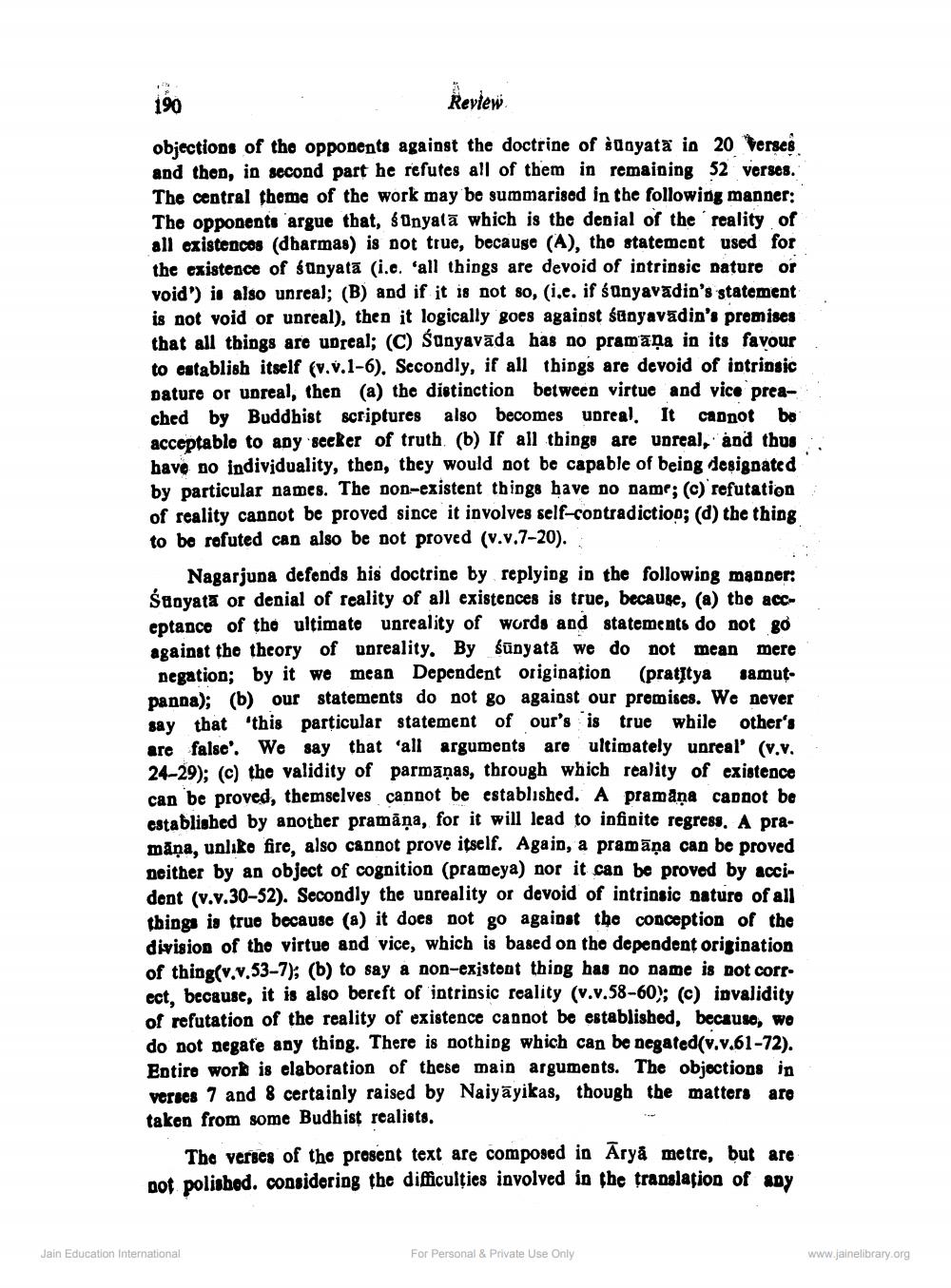________________
190
Review
.
objections of the opponents against the doctrine of šunyata in 20 Verses and then, in second part he refutes all of them in remaining 52 verses. The central theme of the work may be summarised in the following manner: The opponents argue that, śOnyatā which is the denial of the reality of all existencos (dharmas) is not true, because (A), tho statement used for the existence of sunyata (i.c. 'all things are devoid of intrinsic nature or void') is also unreal; (B) and if it is not so, (i.e. if śunyavādin's statement is not void or unreal), then it logically goes against sünyavadin's promises that all things are unreal; (C) Sdnyavāda has no pramāņa in its favour to establish itself (v.v.1-6). Secondly, if all things are devoid of intrinsic Dature or unreal, then (a) the distinction between virtue and vice preached by Buddhist scriptures also becomes unreal. It cannot be acceptable to any 'seeker of truth. (b) If all things are unreal, and thus have no individuality, then, they would not be capable of being designated by particular names. The non-existent things have no name; (c) refutation of reality cannot be proved since it involves self-contradiction; (d) the thing to be refuted can also be not proved (v.v.7-20).
Nagarjuna defends his doctrine by replying in the following manner: Śdayata or denial of reality of all existences is true, because, (a) the acccptance of the ultimate unreality of words and statements do not go against the theory of unreality. By śünyata we do not mean mere
negation; by it we mean Dependent origination (pratstya samutpanna); (b) our statements do not go against our premises. We never say that this particular statement of our's is true while other's are false'. We say that 'all arguments are ultimately unreal' (v.v. 24-29); (c) the validity of parmaņas, through which reality of existence can be proved, themselves cannot be established. A pramana cannot be established by another pramāņa, for it will lead to infinite regress. A pramāna, unliko fire, also cannot prove itself. Again, a pramāņa can be proved neither by an object of cognition (prameya) nor it can be proved by accident (v.v.30-52). Secondly the unreality or devoid of intrinsic nature of all things is true because (a) it does not go against the conception of the division of the virtue and vice, which is based on the dependent origination of thing(v.v.53-7); (b) to say a non-existont thing has no name is not correct. because, it is also bereft of intrinsic reality (v.v.58-60); (c) invalidity of refutation of the reality of existence cannot be established, becauso, wo do not negate any thing. There is nothing which can be negated(v.v.61-72). Entire work is elaboration of these main arguments. The objections in verses 7 and 8 certainly raised by Naiyāyikas, though the matters are taken from some Budhist realists.
The verses of the present text are composed in Āryå metre, but are not polished. considering the difficulties involved in the translation of any
Jain Education International
For Personal & Private Use Only
www.jainelibrary.org




